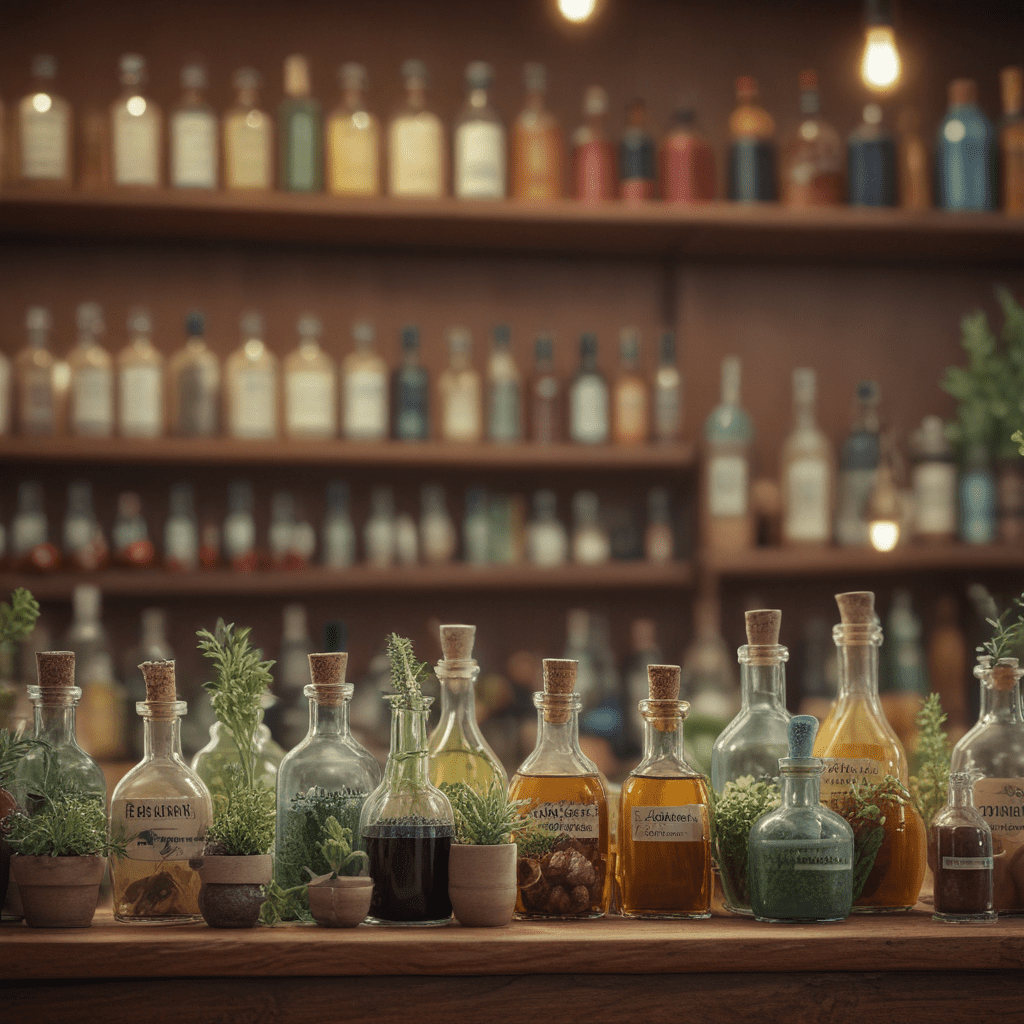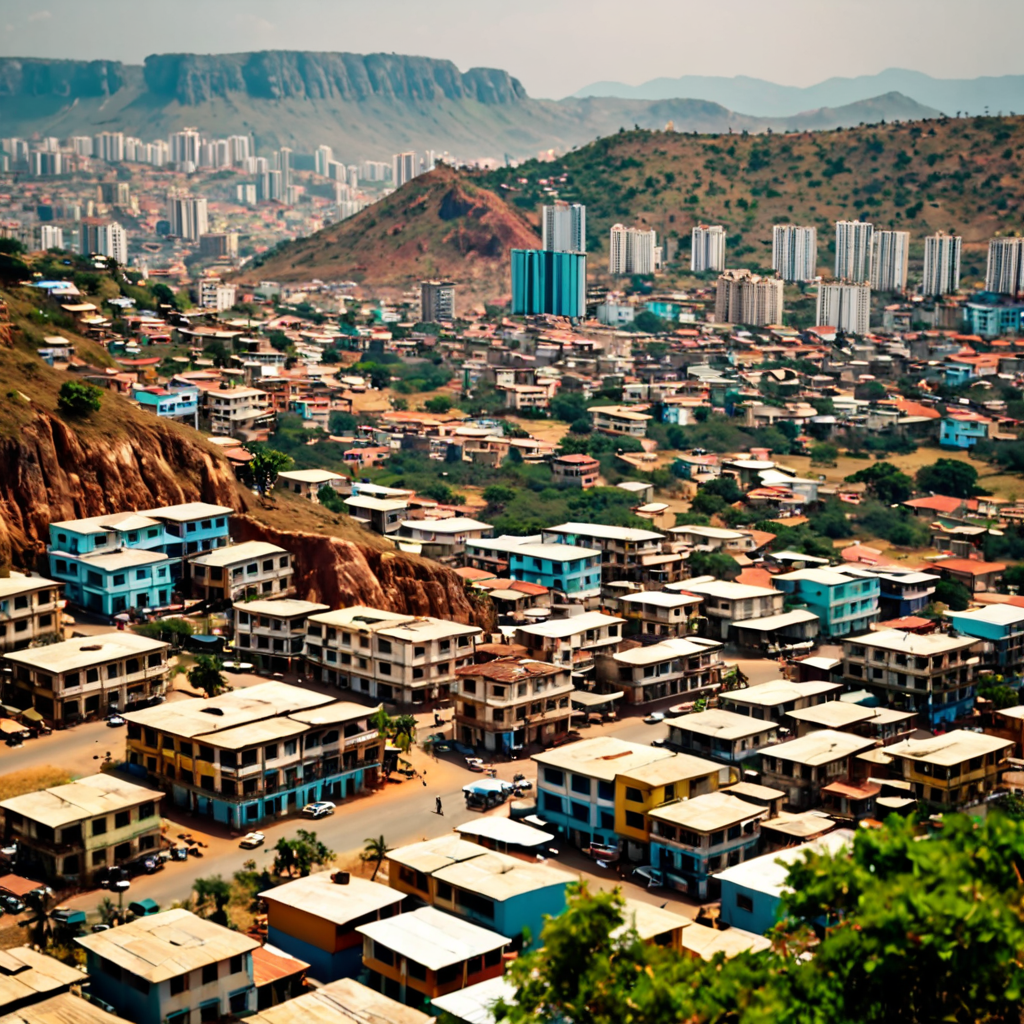
1. Introduction to Bahrain’s Traditional Potions
Bahrain, a vibrant island nation in the Persian Gulf, boasts a rich cultural tradition of herbal remedies. These traditional potions, passed down through generations, have played a vital role in maintaining the health and well-being of the Bahraini people. In recent years, there has been a renewed interest in these ancient practices, as people seek natural and holistic approaches to healthcare.
2. History and Cultural Significance of Herbal Remedies
The use of herbal remedies in Bahrain has a long and storied history. The country's location at the crossroads of trade routes meant that it was exposed to a wide range of medicinal plants from different parts of the world. Over time, the local population developed a deep understanding of the therapeutic properties of these plants and incorporated them into their traditional healing practices. Herbal remedies became an integral part of Bahraini culture, passed down from generation to generation through oral traditions and written texts.
3. Medicinal Plants Commonly Used in Bahrain
Traditional Bahraini potions typically incorporate a variety of medicinal plants, each with its unique healing properties. Some of the most commonly used plants include:
Aloe vera: Known for its soothing and anti-inflammatory properties, aloe vera is used to treat burns, skin irritations, and digestive disorders.
Chamomile: A calming herb that promotes relaxation and sleep, chamomile is used to treat anxiety, stress, and insomnia.
Ginger: A versatile herb with anti-nausea, anti-inflammatory, and antioxidant properties, ginger is used to treat digestive issues, headaches, and colds.
Mint: A refreshing herb with antibacterial and anti-inflammatory properties, mint is used to treat digestive problems, nausea, and headaches.
Saffron: A precious spice with antioxidant and anti-depressant properties, saffron is used to treat anxiety, depression, and digestive disorders.
4. Traditional Preparation Methods of Herbal Remedies
Traditional Bahraini herbal remedies are typically prepared using simple methods that have been passed down through generations. These methods include:
Decoction: Boiling the plant material in water to extract the medicinal compounds.
Infusion: Steeping the plant material in hot water to create a tea-like beverage.
Poultice: Mixing the plant material with a liquid or oil to create a paste that is applied to the skin.
- Tincture: Soaking the plant material in alcohol to create a concentrated extract.
6. Dosage and Usage Guidelines
Proper dosage and usage of traditional Bahraini herbal remedies are essential to ensure safety and effectiveness. The recommended dosage varies depending on the specific plant used, the method of preparation, and the intended purpose. It is crucial to consult with a qualified herbalist or healthcare practitioner before using any herbal remedy to determine the appropriate dosage and duration of use.
7. Safety Considerations and Potential Side Effects
While traditional Bahraini herbal remedies are generally considered safe when used appropriately, it is essential to be aware of potential side effects and contraindications. Some herbs may interact with certain medications or medical conditions, so it is crucial to consult with a healthcare professional before using any herbal remedy, especially if you are taking prescription drugs or have any underlying health issues.
8. Preservation and Storage Techniques
Proper preservation and storage techniques are crucial to maintain the quality and efficacy of traditional Bahraini herbal remedies. Dried herbs should be stored in airtight containers in a cool, dark, and dry place. Liquid preparations, such as tinctures and decoctions, should be refrigerated and used within a few days. Fresh plant material should be used as soon as possible after harvesting to preserve its potency.
9. Modern Research on Traditional Remedies
In recent years, there has been growing interest in the scientific validation of traditional Bahraini herbal remedies. Studies have shown that many of these remedies have significant therapeutic potential, supporting their traditional uses. Ongoing research aims to investigate the chemical constituents, pharmacological properties, and clinical applications of these herbal remedies to provide scientific evidence for their effectiveness and safety.
10. Cultural Preservation and Transmission of Knowledge
Preserving and transmitting traditional Bahraini herbal remedies is crucial for safeguarding the cultural heritage of the country. Initiatives such as community workshops, herbal gardens, and documentation projects play a vital role in ensuring that the knowledge and practices associated with these remedies are passed down to future generations. Educational programs and publications help raise awareness about the importance of traditional medicine and promote its sustainable use.
FAQs
Q1. Are traditional Bahraini herbal remedies safe to use?
A1. While generally considered safe when used appropriately, it is crucial to consult with a qualified herbalist or healthcare practitioner before using any herbal remedy to assess potential side effects and contraindications.
Q2. How should I store traditional Bahraini herbal remedies?
A2. Dried herbs should be stored in airtight containers in a cool, dark, and dry place. Liquid preparations should be refrigerated and used within a few days. Fresh plant material should be used as soon as possible after harvesting.
Q3. Are there any scientific studies supporting the use of traditional Bahraini herbal remedies?
A3. Yes, modern research has shown that many traditional Bahraini herbal remedies have significant therapeutic potential, supporting their traditional uses. Ongoing studies continue to investigate their chemical constituents, pharmacological properties, and clinical applications to provide scientific evidence for their effectiveness and safety.


